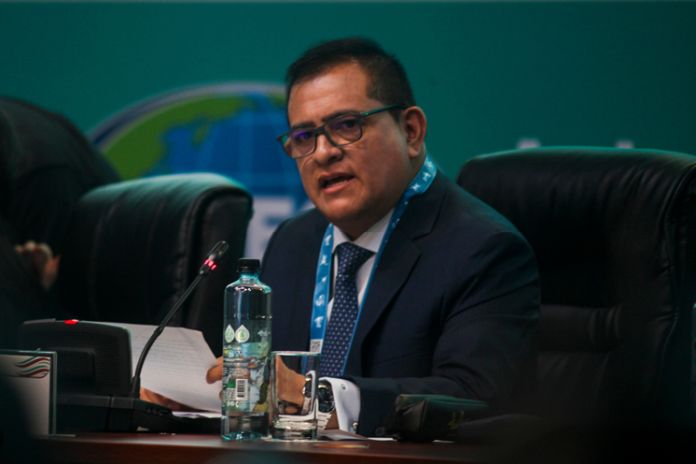– Collaboration and collective action are necessary to ensure standards are widely adopted and effectively implemented
By César José Bernabé Pérez
ASIA – Asia-Pacific Economic Cooperation (APEC) is united by its mission to build a dynamic and harmonious Asia-Pacific community by supporting free and open trade and investment, promoting and accelerating regional economic integration, encouraging economic and technical cooperation, enhancing human security and facilitating a sustainable business environment.
The work being done in the Sub-Committee on Standards and Conformance (SCSC) directly contributes to this mission and what makes our participation crucial in fulfilling the SCSC’s mandate to reduce the negative effects that differing standards and conformance agreements have on trade and investment flows in the Asia-Pacific region. The SCSC enables us to collaborate, mutually benefiting from each other’s expertise, regardless of the varying levels of development among our economies.
During Peru’s hosting of APEC in 2024, we are continuing the themes initiated last year in the United States, as expressed in the San Francisco Principles. These include trade facilitation, alignment with international standards, good regulatory practices, the development of technical infrastructure for quality, and cooperation in food security. All of these are vital aspects for improving the efficiency and competitiveness of our economies towards an inclusive and sustainable approach.
The topics we addressed at our latest meeting in Lima included actions aimed at the progressive liberalization of trade in goods through the reduction of unnecessary barriers; the reduction of digital divide; the promotion of macroeconomic policies; and the identification of ways to use technology and science to support economic recovery and resilience.
Similarly, we continue to find ways in strengthening our collective actions in gender equity policies, economic, financial and social inclusion; the creation of enterprises and access for micro, small and medium enterprises or MSMEs to financing; international markets and global value chains; and addressing an urgent and sensitive issue that is food security.
The SCSC likewise pays special attention to the discussion of policies on standardization and conformance that include women and other vulnerable groups, emphasizing the positive impact that quality infrastructure has on such interventions.
In fact, one of our policy discussions served as a platform for members to take stock of recent developments in gender-responsive standards, the role of women in standards, and the benefits of gender-responsive standards to industry and the economy.
In recent years, there has been a notable shift towards recognizing the importance of gender-responsive standards in various sectors worldwide. From technology and healthcare to education and finance, efforts are being made to ensure that standards are not only inclusive but also address the unique needs and perspectives of diverse genders.
The journey towards gender-responsive standards has been characterized by a growing awareness of the disparities and biases inherent in traditional standards. In response, organizations, governments and advocacy groups have initiated various initiatives to address these challenges.
Across the presentations, we heard that while the role of women is increasingly recognized as pivotal to sustainable growth and progress, an often-overlooked aspect of their contribution is their involvement in shaping and implementing standards. Standards, the benchmarks that define quality, safety and efficiency, play a fundamental role in various sectors.
The panel highlighted that women bring unique perspectives, experiences and insights to the table, ensuring that standards are not only robust but also reflective of the entire population they aim to serve.
Diversity in standards development is essential because it mirrors the diversity of end-users. Women, as both consumers and professionals, often interact with products and services differently than men. Recognizing these distinctions is crucial to crafting standards that are not only inclusive but also optimized for universal use.
Indeed, all this knowledge sharing motivates and inspires us, from the alignment of standards in trade to women’s participation to equitable progress, as they represent significant steps in ensuring a better life for future generations. There is still much work to be done to ensure standards are widely adopted and effectively implemented. It is also time to embrace the inclusive journey toward standards that truly serve the needs of everyone, irrespective of gender.
I encourage members to actively participate in this space, to generate a constructive and collaborative year, taking advantage of best practices and collective approaches to achieve the goals and priorities of APEC 2024.





